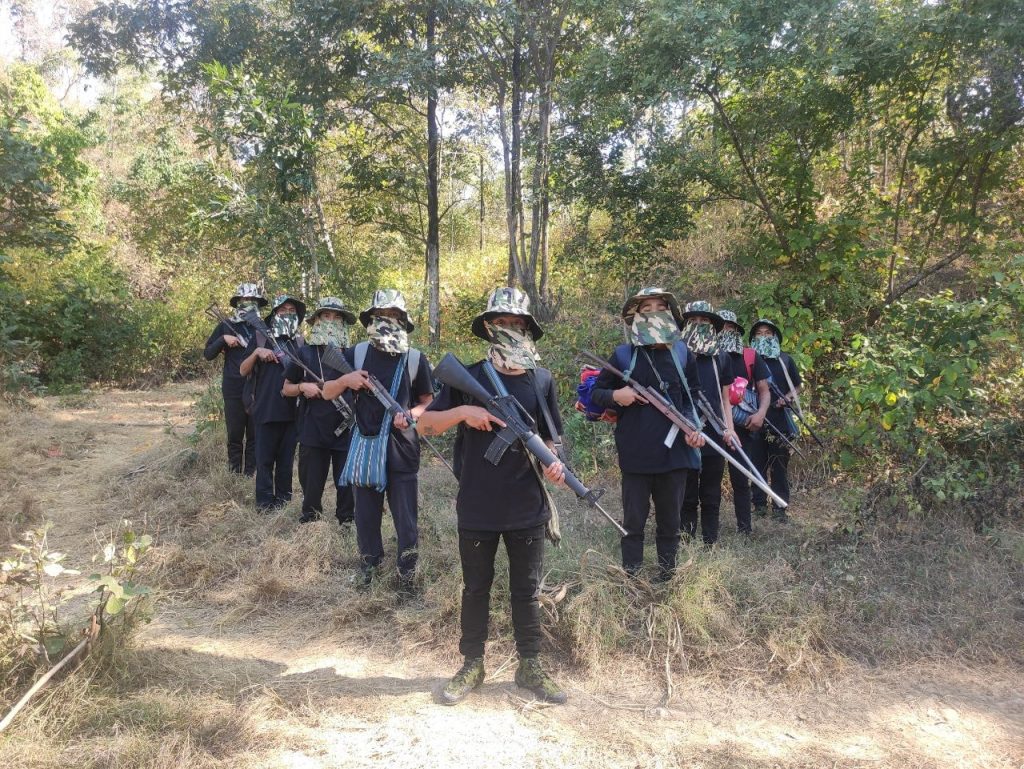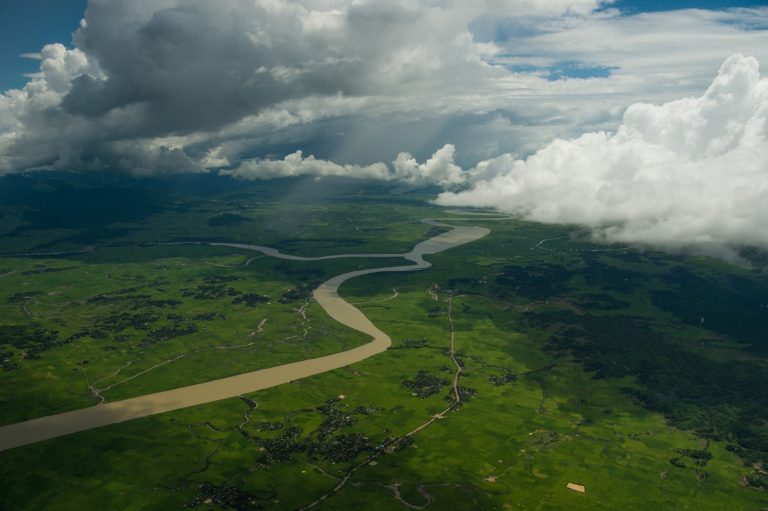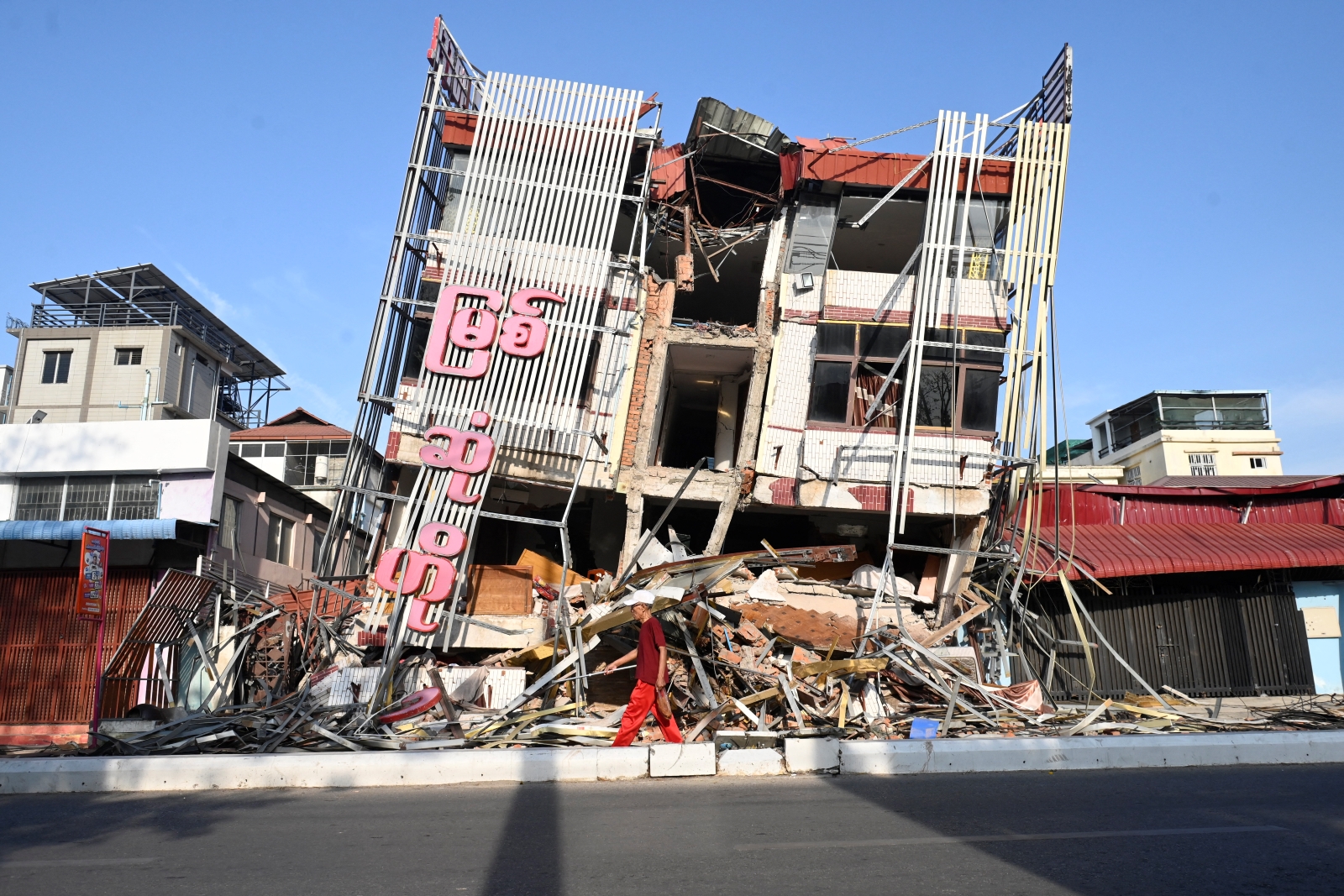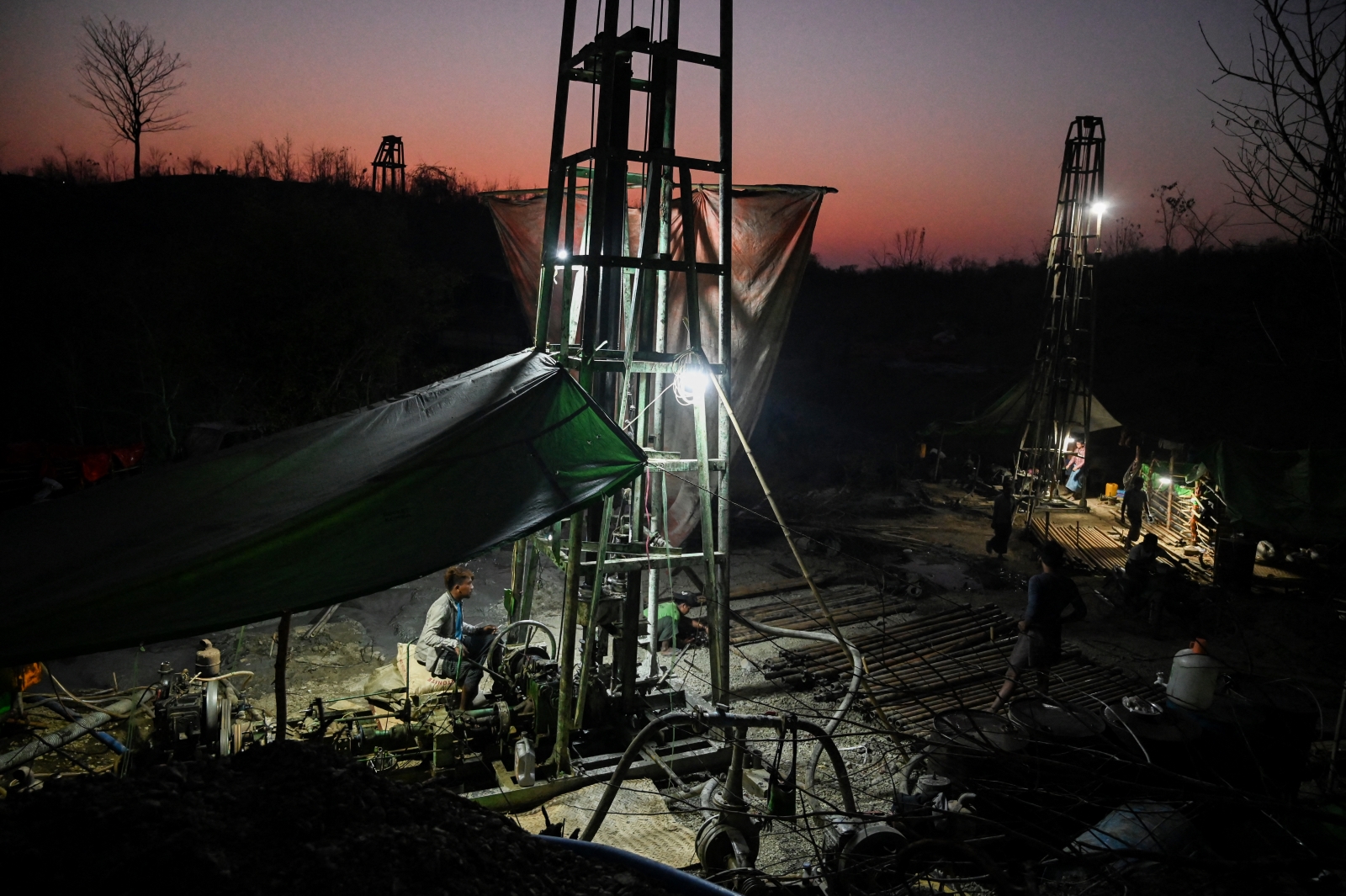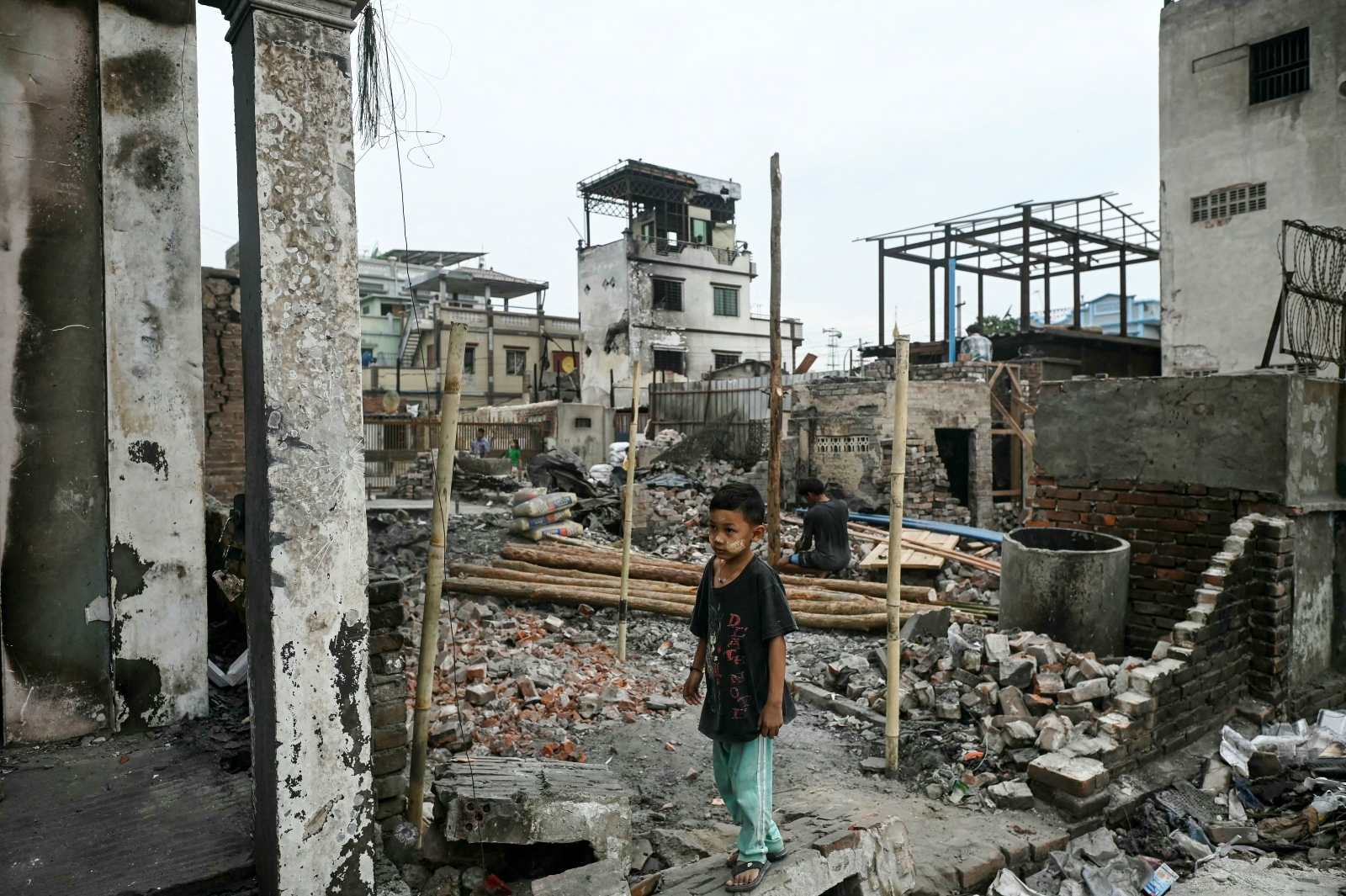Some anti-coup armed groups have chosen to remain independent of the National Unity Government, with varying degrees of success. Citing distrust of the NUG and disappointment with the NLD, these groups are going it alone or relying on the support of ethnic armed groups.
By FRONTIER
The Anti-Dictatorship People’s Revolutionary Army was formed with 100 members in April of last year, after the military’s brutal crackdowns on peaceful protesters left hundreds dead. Since then, it has swelled to nearly 1,000 fighters, most of which operate in the war-torn Sagaing Region, while some stage urban guerrilla attacks in Yangon and Mandalay.
“We are standing for the oppressed people and are determined to fight for their rights,” said Ko Lin Nway, a core member of the DPRA, which he claimed controls “many villages” in Sagaing.
But while the group is committed to overthrowing the military dictatorship, it has distanced itself from the National Unity Government, which declared a people’s defensive war in September of last year. The NUG was appointed by lawmakers elected in the 2020 polls, which the military refused to recognise.
Most NUG members come from the overthrown National League for Democracy, which won back-to-back landslide victories in 2015 and 2020. Despite its broad popular domestic support, some in the activist community were disappointed by the NLD’s time in power. So while the NUG has promised reforms to criticised NLD policies, some remain wary.
“The policies of the NUG … are not practical. Another objection we have is that the National League for Democracy government prioritised reconciliation with the military and ignored the rights of farmers and workers,” said Lin Nway, recalling that farmers and workers were arrested during the NLD administration for protesting.
Since the military overthrew the NLD in February of last year, armed resistance groups have mushroomed throughout the country, from southern Tanintharyi Region to the Bamar heartland Dry Zone regions of Sagaing, Magway and Mandalay and beyond to the Chin hills. They have grown both in number and power, and now launch frequent attacks against junta personnel and facilities.
Many of these groups, but not all, have pledged loyalty to the NUG. The NUG told a news conference on June 22 that 257 battalions had been established under the command of its defence ministry andmore than 500 People’s Defence Force groups are affiliated with the parallel government.
U Kyaw Zaw, a spokesperson for the NUG President’s Office, told Frontier that the shadow government was working closely with all local resistance groups and providing them with some support. He said any group wanting to serve under the NUG had to follow two main rules.
“They are required to adhere to military codes of conduct and be loyal to the revolution,” Kyaw Zaw said.
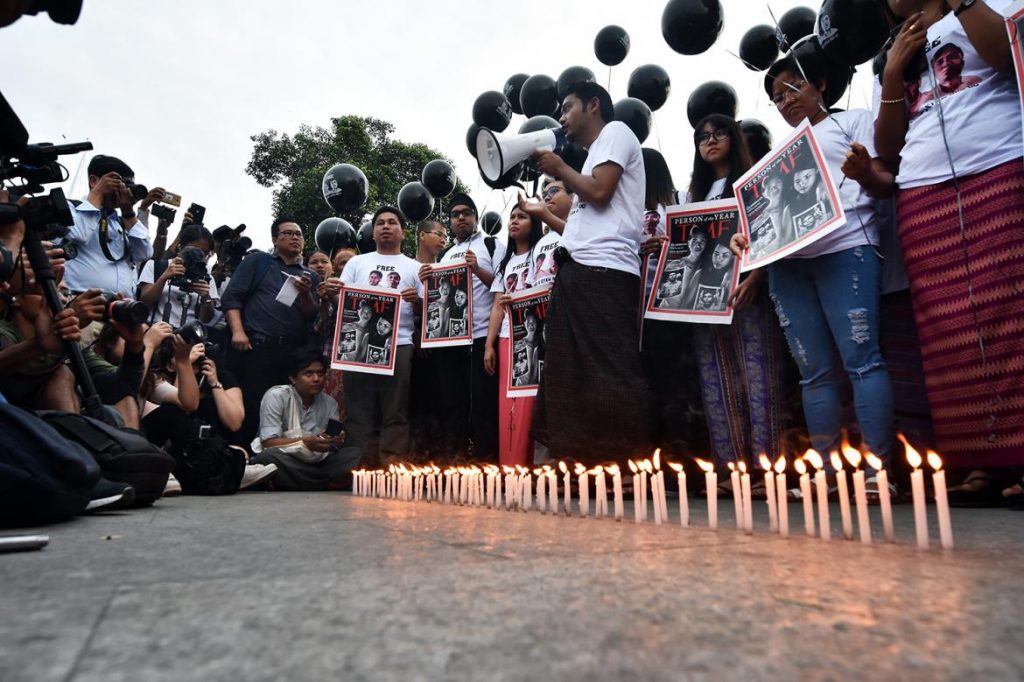
Keeping the NUG at an arm’s distance
But the DRPA is not the only group choosing to remain independent. Another such group is the Bamar People’s Liberation Army, which celebrated its first anniversary on April 17. It was formed with 30 members in a “liberated area”, a term used to refer to areas outside the military’s control.
“The BPLA became a well-organised army within a year,” said Maung Saungkha, a prominent poet and free speech advocate turned resistance fighter.
He serves as the commanding officer of his unit, though the BPLA has a leadership system that does not use military ranks. Maung Saungkha attributed the group’s successful growth to its stability. The organisation has a systematic hierarchy, a clear division of leadership responsibility, a system of rules for members, and provides fighters with basic necessities including uniforms.
“Unlike other groups, we provide anyone accepted for training with a full uniform. No one undertakes military training in civilian clothes,” Maung Saungkha said.
Maung Saungkha had campaigned for the NLD in 2015 but left the party in 2018 after becoming disillusioned. In particular, he cites party leader Daw Aung San Suu Kyi’s decision to defend the arrests of two Reuters journalists who exposed a military massacre of Rohingya civilians. In 2020, his free speech advocacy group, Athan, found that more people faced legal action for criticising the government under the NLD than under the previous government.
While Aung San Suu Kyi is imprisoned incommunicado at present, Maung Saungkha fears that an NUG under her leadership could one day choose to negotiate with the military or give up on the ideal of a federal union incorporating ethnic groups. The BPLA is so committed to federalism that it incorporates lessons on the topic into its four-month military training courses.
“We stand independently. We can continue our fight until our goals are achieved,” said Maung Saungkha. “Fighting independently and not working under the NUG does not mean we are competing with the NUG.”
But the BPLA doesn’t work entirely independently. The group operates in territory controlled by the Karen National Liberation Army’s Brigade 5, one of the armed groups under the Karen National Union.
BPLA fighters have been serving on the frontlines under the leadership of the KNLA since December 2021. “We can deploy large numbers of our troops in the Brigade 5 area. We have fought in many battles, but we rarely post about the battles on social media,” Maung Saunghka said, also declining to give the exact number of troops for security reasons.
Maung Saungkha said the BPLA does sometimes fight alongside NUG-aligned PDFs and other ethnic armed groups, though he declined to elaborate.
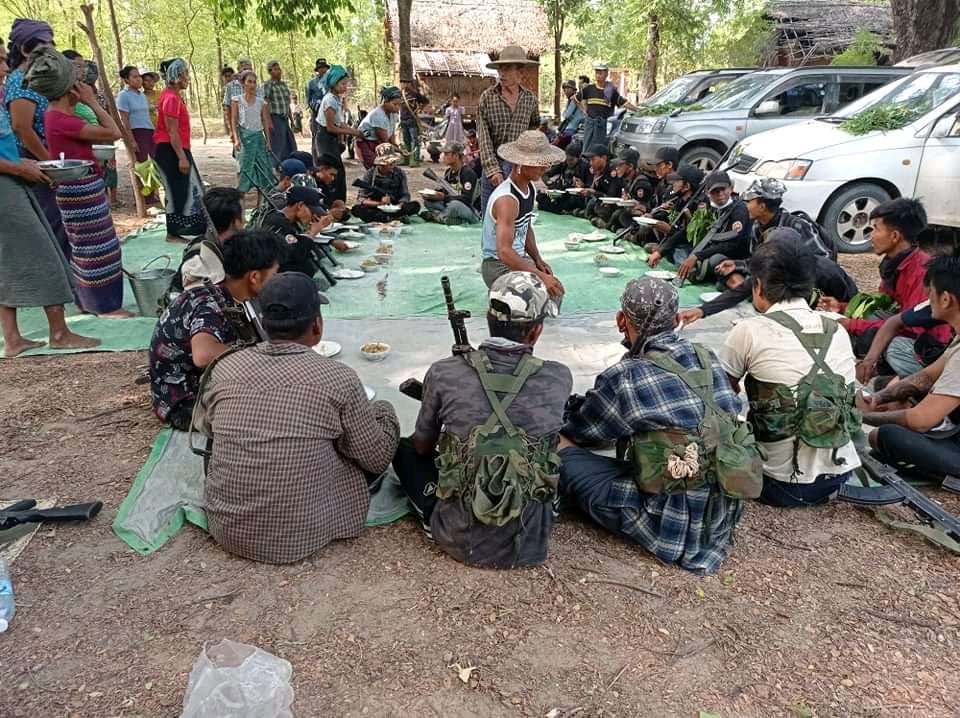
Fighting back in Sagaing
As junta violence has escalated, so have grim reports about the killing and torture of civilians and their use as human shields, artillery attacks on residential areas and the torching and looting of homes and villages.
Some of the worst atrocities have occurred in the Bamar heartland in Sagaing and Magway, where the military is facing a determined resistance from increasingly stronger and more effective local defence forces. As well as their role in defending civilians from regime forces, these groups, which aspire to build a more professional, well-equipped army in the post-revolution period, also try to provide political leadership.
Besides the DPRA, groups fighting back without being under the command of the NUG also include the People’s Revolution Front and the Black Wolf Defence Force-Monywa.
The PRF, which has attracted young people from throughout Myanmar, operates in Magway Region’s Pakokku, Pauk and Sidoktaya townships, Sagaing Region’s Wetlet Township and in Yangon Region. It has about 500 members with two political leaders and three military leaders.
The political and military leadership team cooperates with a central leading body and sub-sectoral working groups. They are responsible for managing funding and weapons, according to Ko Hlyap See, Officer-in-Charge of the Pakokku Military Region, one of the PRF’s four regions.
“The four military regions are managed by individual leaders. I can make decisions about military affairs and recruitment,” Hlyap See told Frontier.
He said PRF groups control nearly 100 villages in the Pakokku Military Region, where only three communities are controlled by the pro-military militia, the Pyusawhti.
“We maintain security in all the villages we control and we have even supported the opening of schools in some villages,” Hlyap See said, adding that he could not give the location of the schools for the safety of the students. As many teachers and students are boycotting junta-run institutions, a network of alternative schools have emerged to provide educational options for children.
Despite the difficulties in raising funds and obtaining weapons, like the DPRA, the PRF says it has no interest in working under the NUG.
“If we worked under the leadership of someone without combat experience, my soldiers would be at risk,” Hlyap See explained. Even though most of the fighters who have joined the PRF were not trained combatants before the coup, they have grown in strength and now perceive themselves to be capable fighting forces.
But for some groups, the lure of greater funding and support is irresistible.
“We cannot fight against the military forces because we have fewer weapons and not as much manpower,” said Ko Bi Lone, a leader of the 50-member Black Wolf Defence Force-Monywa. The group formed organically and operated independently for convenience’s sake but does not have a principled aversion to working with the NUG like some other groups.
Black Wolf Defence Force says it only receives about K1 million in donations per month, less than $550, and is desperate for more weapons.
“We attack them when we have the opportunity. Sometimes we throw a grenade, then we run quickly. If they see us and shoot, we are at risk of being killed because we don’t have guns to defend ourselves,” Bi Lone said. He added that there are 11 other resistance groups in the area that Black Wolf Defence Force sometimes fights alongside.
He said it has been hard for the group to gain the trust of the public for donations because it is not affiliated with the NUG.
Facing a shortage of funds, the group ultimately appealed for recognition as a PDF under the NUG’s command. A request letter was sent through another local PDF group four months ago, but the Black Wolf Defence Force is still waiting for an answer.
The NUG did not answer questions about delays in recognising new PDFs but directed any group wanting to affiliate with the NUG to contact an official in their area.
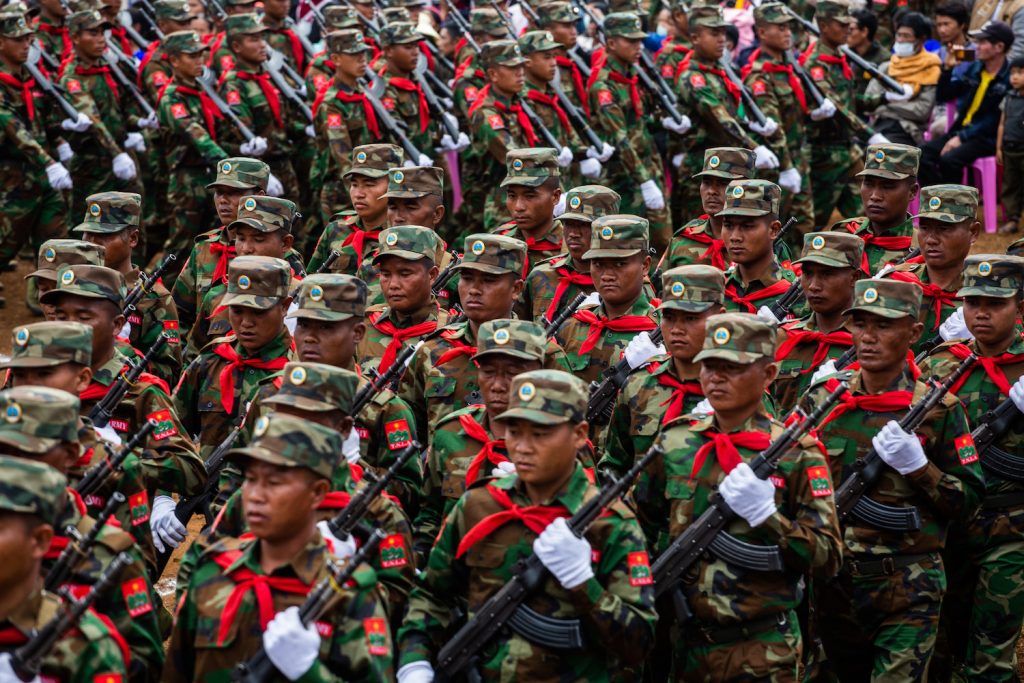
Relying on ethnic allies
A lack of money and weapons is the biggest challenge facing all anti-junta armed groups. Most admit they are only able to equip about 10 percent of their fighters with automatic weapons, with the rest armed with homemade guns or not at all.
U Htin Linn Aung, the NUG’s Minister of Communications, Information and Technology, told Frontier during a press conference on June 22 that the Ministry of Defence has raised $44 million.
Resistance groups not allied with the NUG typically don’t receive any funds directly from the NUG to support their activities. They told Frontier they mostly rely on funding provided by individual donors and charity groups in Myanmar and abroad.
Hlyap See said the PRF’s Pakokku Military Region needed about K10 million a month for food and other basic necessities, but only received about half of that amount from their public donations.
“We cannot provide salaries and uniforms to our members, but other basic needs can be met,” Hlyap See said, adding that the group does not allow individuals to use the PRF’s name for their own fundraising purposes. All donations to the PRF are managed by the central leading body and those holding respective in-charge positions have to claim for any necessary expenses.
Many of these groups struggle to even provide enough food and basic needs for members, although some have received support in the form of military training and arms from ethnic armed groups.
The PRF and BPLA both said they closely cooperate with the Arakan Army, Ta’ang National Liberation Army and the Myanmar National Democratic Alliance Army, known collectively as the Brotherhood Alliance.
“Weapons are more available from the three [Brotherhood] allies,” said Maung Saungkha, who believes that the BPLA gained their trust because of their enthusiasm and commitment to federalism and ethnic issues.
Maung Saungkha was arrested in 2020 for protesting the internet shutdown in Rakhine State, which was imposed by the government during the military’s campaign against the AA.
Asked how much the BPLA had paid the Brotherhood Alliance for arms supplies, he said, “They did not ask for anything. We promised that we would fight until our political goals were achieved. They do not seek to have influence over how we run our group and they treat us like allies.”
Maung Saunghkha said anyone wishing to join the BPLA must commit to serving it until the end of the revolution. Members are also banned from seeking public donations and from keeping any cash, even their own money.
Donors can give directly to the BPLA and in the interest of transparency, donations are listed on the group’s social media page. Donors don’t get a say in how their contribution is spent. “I explain this policy clearly to those who want to join the BPLA. There were some who did not want to join when they realised that we are not working under the leadership of the NUG,” Maung Saungkha said.
Despite their strict donation policy, BPLA is still receiving financial support to some extent like other groups, through local and international donations. The BPLA did not reveal how much it receives in donations every month.
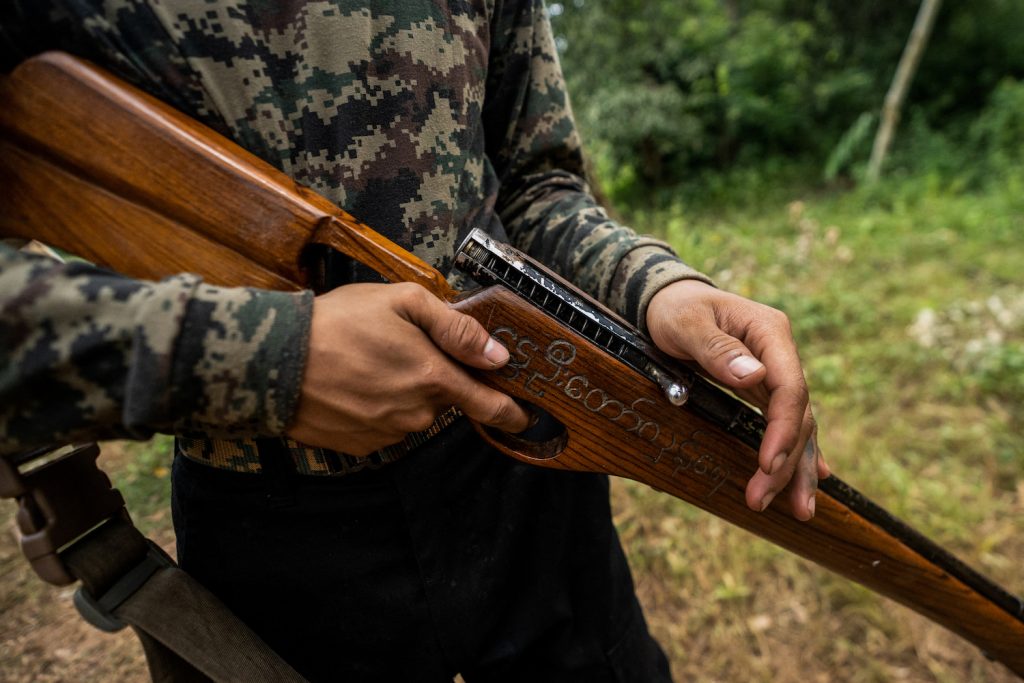
Making weapons
Another solution to the shortage of funds and weapons is to simply make them.
“We produce single-barreled weapons, including shotguns. The monthly production depends on income. Now that the roads are closed, it is very difficult to get raw materials,” said Bi Lone, from the Black Wolf Defence Force.
The DPRA says it receives about K10 million a month from the public, but says it makes most of its own weapons. The group estimates that each month it can make 20 rocket launchers, 30 60mm mortars, 20 grenades and 30 rifles, subject to the availability of raw materials.
The technique for producing rockets was learned from the Kani Guerrilla Force, a resistance group based in Sagaing’s Kani Township that is allied with the DPRA. The weapons cost about K15,000 each to make and the rockets have a range of between three and eight kilometres.
“We can’t buy a lot of real guns, so we have to rely on handmade weapons. The main problem is getting raw materials, which are available locally as well as at the border,” said Lin Nway.
Other than Black Wolf Defence Force, the armed groups that spoke to Frontier for this story said they did not believe submitting to the NUG would result in more weapons or funding, because the NUG is still struggling to arm groups under its control.
The NUG has acknowledged the sprawling web of revolutionary groups which emerged after the coup. At the June 21 press conference, NUG Press Secretary U Nay Phone Latt said that the NUG is working to systematically organise and unite various groups, but didn’t say how the NUG views those that choose to remain independent. He also noted the presence of “fake” PDFs.
“I cannot say all armed groups are PDFs,” Nay Phone Latt said. “At present, we are witnessing that there are armed groups calling themselves PDFs, which might even be called fake PDFs, who are robbing and bullying people. We will continue to deal with such cases in accordance with the law, ” he said, although access to justice remains a challenge in Myanmar.
Revolutionary groups independent of the NUG told Frontier they share the hope for victory. Many also look forward to the subsequent emergence of a unified federal army.
“When we fight the dictator, we may have different policies and a different approach, but we have the same goals,” said Maung Saungkha. “Although we are not under the NUG, I regard us as revolutionary forces which are trying to eradicate the military dictatorship. To achieve that goal, we want to fight the military with allies,” he said.


